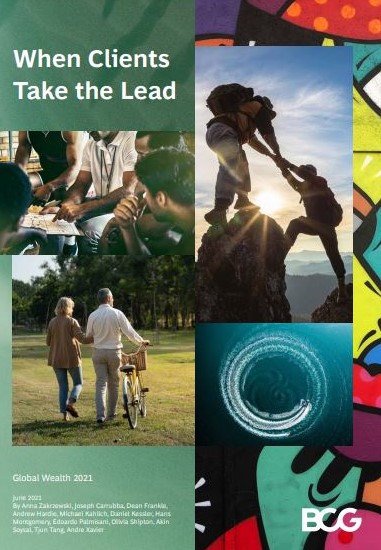What is this Report?

The Boston Consulting Group’s 21st annual report looks at global wealth as well as the field of wealth management. Ultra-high net worth individuals are those individuals with assets over $100M.
What are the key findings from the article?
- Global wealth expanded by 8.3%in 2020. This came as a surprise to BCG! It had predicted global wealth would decline, since after the financial crisis in 2008, global wealth contracted by 8%.
- BCG predicts that financial assets will surpass real asset growth in Asia and that “investment funds will become the fastest growing financial-assets class.” In mature countries such as the US, wealthy people hold more of their wealth in financial assets such as cash, deposits, and securities. In growing countries, wealthy people hold more of their wealth in real assets, such as real estate, jewelry, fine art, and gold coins.
- The US currently has the largest number of Ultra High Net Worth Individuals, but China is projected to surpass them in 2029 with an annual rate of 13%.
- BCG advises that its new“simple-needs segment whose wealth is $1 million or less” are a missed opportunity for wealth management. There are 331 million individuals in the segment with $59 trillion in investment wealth. These people have money to invest, just not quite as much. This segment requires a different approach, such as more financial education tools and digital tools such as dashboards, that provide customization that can be scaled.
- In the upcoming decade, the segment currently aged between 20 and 50 will become an important wealth segment. In interviews with BCG, people in the segment note that they do not want to be treated like their parents. They want “exclusive opportunities, specialized lending and investment expertise” — not the same run of the mill investment advice. BGC notes: “Collectively, the next gen has longer investment horizons, a greater appetite for risk, and often a desire to use their wealth to create positive societal impact as well as solid returns.”
- Retirees are a fast-growing demographic. BCG predicts that by 2050, 1.5 billion people across the globe will be at least 65. This segment is trying to figure out what to do with their accumulated wealth or rather how to get rid of wealth, whether it’s spending it to live a comfortable life or leaving it to their children or elsewhere. And community is important. However, wealth management is not meeting this segment’s needs given the industry’s focus on wealth accumulation not decumulation.
What can I do as a result?
- Don’t ignore the assets of your mid-level prospects. Just as BCG recommends that wealth management firms cannot ignore their simple-needs segment, nonprofits should not ignore the same segment when it comes to fundraising. They may not need an intense relationship to make an asset gift, but are likely to take advantage of educational tools on making asset gifts and would appreciate customized stewardship that could be automated using digital tools.
- Are you underestimating capacity? Much of wealth is held in financial assets that are not easily visible, especially in mature markets like the US and Europe. This is something that Aspire and the prospect research field has been advocating for awhile. The report notes that financial assets constitute 59% of wealth, leaving real estate and other tangible goods at 31%. So, visible, public assets such as real estate only show a small part of the picture for the very wealthy.
- Engage your younger and older donors. Just as wealth management needs to better work with these demographics, fundraising needs to look at these groups as distinct and worthy of effort. The next generation have different needs and wants from their parents are likely to be interested in learning how their wealth can make a philanthropic impact. People on the cusp of retirement want help figuring out to best give away their “extra” money. What planned giving efforts have you made? Also, developing social opportunities for retirees through programs and volunteer engagement, is essential.
- Segmentation, segmentation, segmentation. These groups are not monolithic and within these donor groups, there are different needs. Practicing segmentation that works for demographics and your organization will yield short and long-term fundraising results.
Additional Resources
- When Clients Take the Lead: Global Wealth 2021 l Boston Consulting Group 2021
- Fundraising insights from BCG’s The Future of Wealth Management l Aspire Research Group
- 2020 Segmentation and Personalization in Fundraising Appeals l Clover Leaf Solutions, Aspire Research Group 2021